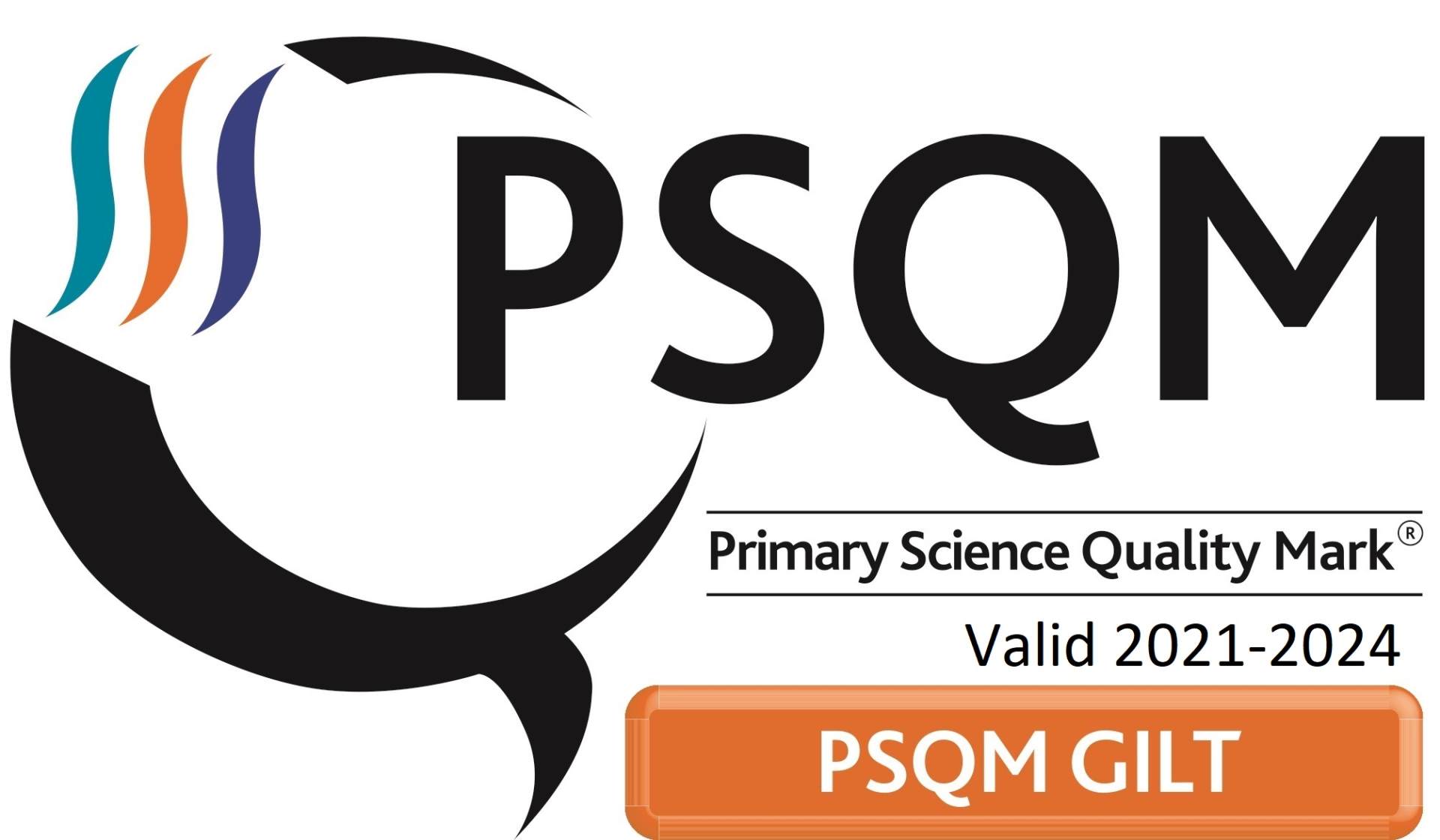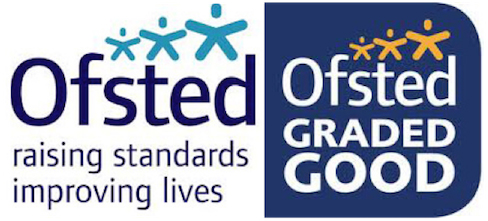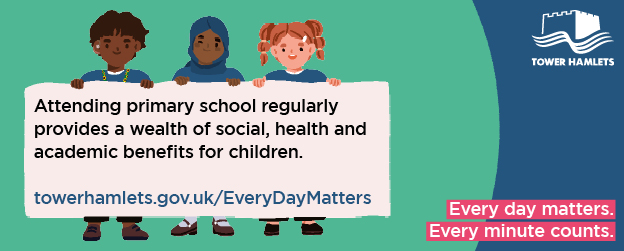Phonics
Intent
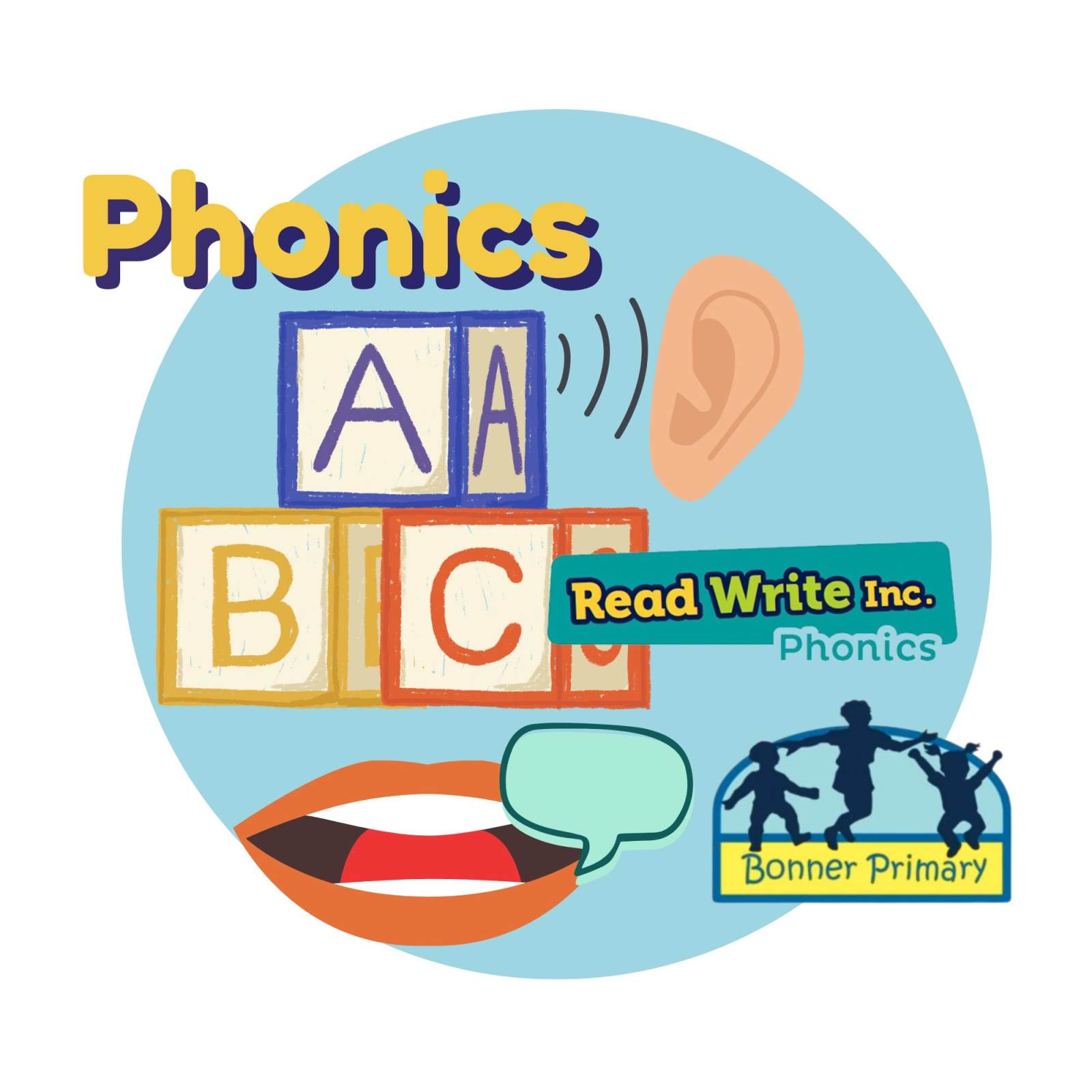 At Bonner Primary School, we are committed to ensuring all children become fluent readers and confident writers. We achieve this by using the Read Write Inc. programme, a structured synthetic phonics system that we introduce in Reception. By following the progression of this scheme, children steadily build their knowledge of phonics, mastering the skills needed to read and spell as they move through the school. We also integrate phonics across the curriculum through shared reading and writing activities. With a strong focus on language development, we recognise that speaking and listening are essential foundations for success in reading and writing.
At Bonner Primary School, we are committed to ensuring all children become fluent readers and confident writers. We achieve this by using the Read Write Inc. programme, a structured synthetic phonics system that we introduce in Reception. By following the progression of this scheme, children steadily build their knowledge of phonics, mastering the skills needed to read and spell as they move through the school. We also integrate phonics across the curriculum through shared reading and writing activities. With a strong focus on language development, we recognise that speaking and listening are essential foundations for success in reading and writing.
We see reading as a crucial skill for life, and by the time children leave Bonner, they can read with confidence and take pleasure in it. Our pupils are well-equipped to handle new vocabulary, and we nurture their love of reading for both enjoyment and purpose. To support this, we have highly skilled Reading Leaders who drive the phonics programme and ensure it is consistently and effectively taught across the school, guiding and supporting our staff to maintain fidelity to the Read Write Inc. approach.
Implementation
Daily phonics lessons in Reception and Year 1We teach phonics for 60 minutes a day. In Reception, we build from 10-minute lessons, with additional daily oral blending games, to the full-length lesson as quickly as possible. Each Friday, we review the week’s teaching to help children become fluent readers. Children make a strong start in Reception: teaching begins in Week 2 of the Autumn term. We follow the Read Write Inc. Progression Overview. Children in Reception are taught to read and spell words using set 1 and set 1 special friends (selected digraphs), as well as some set 2 sounds with fluency and accuracy. Children in Year 1 review set 1 and set 2 sounds and are taught to read and spell words using sets 2 and 3 with fluency and accuracy.
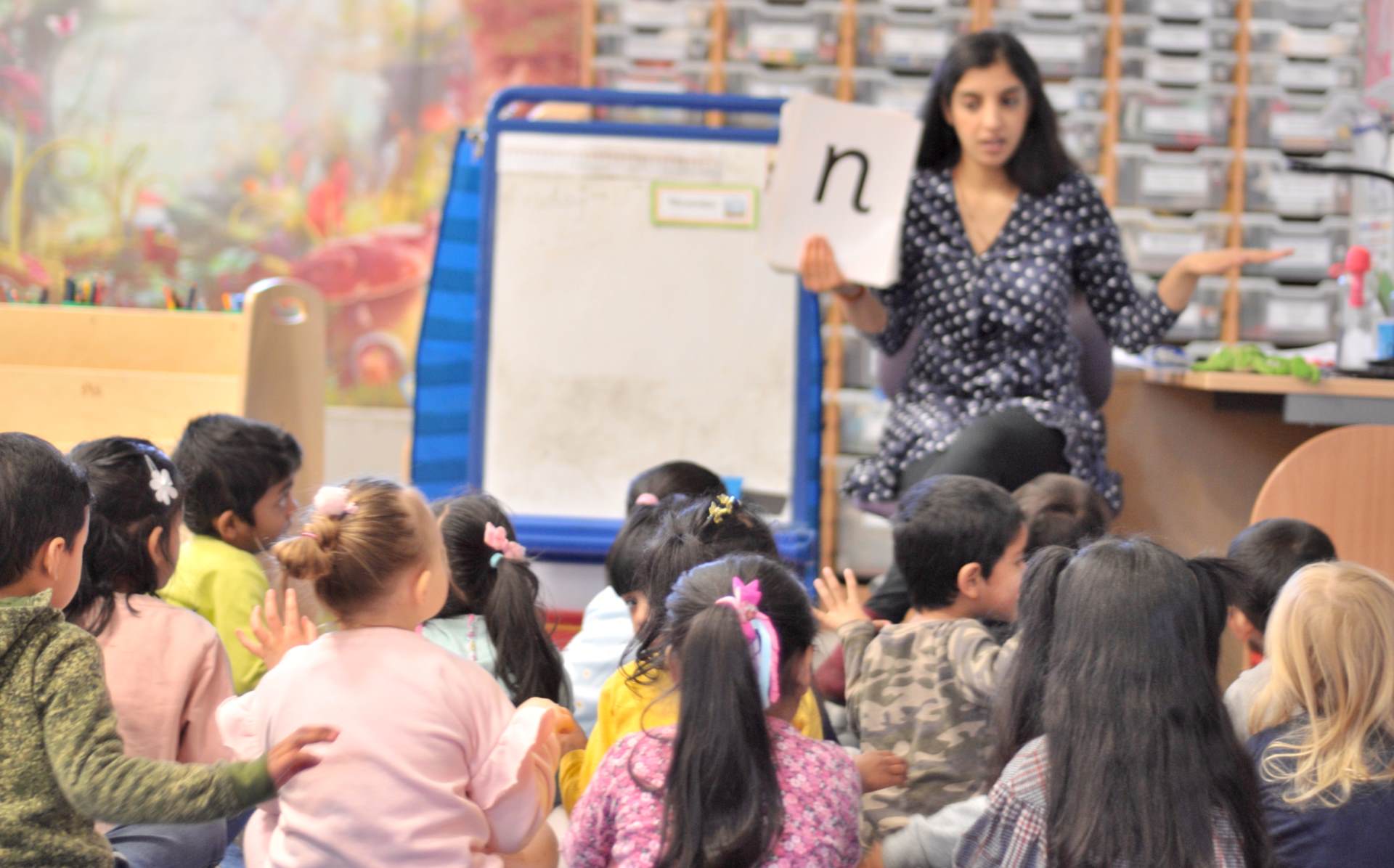
Daily Keep-up lessons ensure every child learns to read
Any child who needs additional practice has daily intervention support, taught by a fully trained adult. Interventions match the structure of class teaching and use the same procedures, resources, and mantras, but in smaller steps with more repetition, so that every child secures their learning. We timetable daily phonics lessons for any child in Year 2 who is not fully fluent in reading or has not passed the Phonics Screening Check. These children urgently need to catch up, so the gap between themselves and their peers does not widen. We use the Little Wandle Letters and Sounds Revised assessments to identify the gaps in their phonic knowledge and teach to these using the Keep-up resources—at pace.
Teaching reading: Reading practice sessions three times a week
We teach children to read through reading practice sessions twice a week. These:- Are taught by a fully trained adult to small groups of approximately six children
- Use books matched to the children’s secure phonic knowledge, using the Little Wandle Letters and Sounds Revised assessments and book matching grids on pages 11–20 of the Application of phonics to reading
- Are monitored by the class teacher, who rotates and works with each group on a regular basis
- Decoding
- Prosody: teaching children to read with understanding and expression
- Comprehension: teaching children to understand the text
In Reception, these sessions start in Week 4. Children who are not yet decoding have daily additional blending practice in small groups, so that they quickly learn to blend and can begin to read books. In Year 2, we continue to teach reading in this way for any children who still need to practise reading with decodable books.
Home Reading
The decodable reading practice book is taken home to ensure success is shared with the family (I read to you books). Reading for pleasure books also go home for parents to share and read to children (You read to me books). We use the Little Wandle Letters and Sounds Revised parents’ resources to engage our families and share information about phonics, the benefits of sharing books, how children learn to blend, and other aspects of our provision, both online and through workshops.Ensuring consistency and pace of progress
Every teacher in our school has been trained to teach reading, so we have the same expectations of progress. We all use the same language, routines, and resources to teach children to read so that we lower children’s cognitive load. Weekly content grids map each element of new learning to each day, week, and term for the duration of the programme. Lesson templates, prompt cards, and how-to videos ensure teachers have a consistent approach and structure for each lesson. The Reading Leaders and SLT use the Audit and Prompt cards to regularly monitor and observe teaching; they use the summative data to identify children who need additional support and gaps in learning.Ensuring reading for pleasure
‘Reading for pleasure is the single most important indicator of a child’s success.’ (OECD 2002)‘The will influences the skill and vice versa.’ (OECD 2010)
We value reading for pleasure highly and work hard as a school to grow our Reading for Pleasure pedagogy. We read to children every day. We choose these books carefully as we want children to experience a wide range of books, including those that reflect the children at Sacred Heart Catholic Primary School and our local community, as well as books that open windows into other worlds and cultures. Books are carefully chosen to support our curriculum and to introduce children to ambitious vocabulary.
Every classroom has books displayed within the classroom or a book corner that encourages a love for reading. We curate these books and discuss them to entice children to read a wide range of literature. In Reception, children have access to the reading corner every day during their free flow time, and the books are continually refreshed. Children from Reception onwards have a home reading record. The parent/carer records comments to share with the adults in school, and the adults will write in this regularly to ensure communication between home and school. Home reading is celebrated through our reading incentives of ‘Reading Stars’.The school library (Starbooks) is made available for classes to use at designated times. Children across the school have regular opportunities to engage with a wide range of Reading for Pleasure events (book fairs, author visits, workshops, national events, etc.). We invite parents and carers into school to share in some of these events.
Impact
Assessment
Assessment is used to monitor progress and to identify any child needing additional support as soon as they require it. Assessment for learning is used:
- Daily within class to identify children needing Keep-up support
- Weekly in the Review lesson to assess gaps, address these immediately, and secure fluency of GPCs, words, and spellings
Summative assessment is used:
- Every six weeks to assess progress, identify gaps in learning that need to be addressed, identify any children needing additional support, and to plan the Keep-up support that they need.
- By SLT and scrutinised through the Little Wandle Letters and Sounds Revised assessment tracker, to narrow attainment gaps between different groups of children and to ensure any additional support for teachers can be put into place.
Statutory assessment
Children in Year 1 sit the Phonics Screening Check. Any child not passing the check re-sits it in Year 2.

Home Reading
All children will take a reading book home daily (see above). If they are reading regularly at home, they can change these books as often as they like (under the guidance of the class teacher). Children are also able to borrow books from the school, class, and outdoor libraries should they wish to do so. We also carefully monitor the children’s reading at home and encourage parents to be fully active and engaged with us in this to support their children’s ongoing development. In addition to their reading books, children take home flashcards to practise and develop their recognition of High-Frequency Words.
Working in Partnership with Parents
At Sacred Heart Catholic Primary School, we want to encourage every child to read with a grown-up at home every night. Children who read with their families grow in confidence much more quickly and develop a love of reading that can last a lifetime. In recognition of the important role parents play, we hope our home/school reading initiatives will motivate children to read at home while earning ‘rewards’ for their efforts.
We held a meeting for all parents early in the spring term to explain the new scheme for phonics and our updated reading schemes, procedures, and expectations. Throughout the year, we offer sessions for parents of children in all year groups to explain how they can support reading development at home.
Read Write Inc Progression Map
read write inc progression map.pdf


